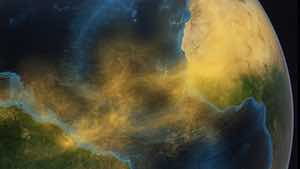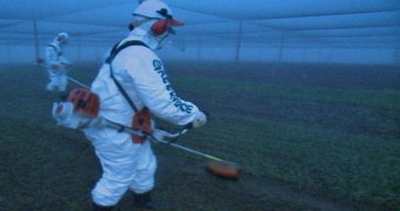Nanny State of EPA and Others
The EPA wants hotels to monitor how much time its guests spend in the shower. The goal of the project is to change the behavior of Americans when they stay at hotels. (1)- Tuesday, June 23, 2015
 About 65 million years ago an object about 10 km (6 miles) across impacted the Earth in the Yucatan. The most accepted theory is that this event ended the Cretaceous Period and wiped out the dinosaurs.
However, debate over what killed the dinosaurs is heating up anew as a team of UC Berkeley scientists suggests that this asteroid slamming into the Earth must have triggered the eruptions of thousands of volcanoes on the other side of the planet—a combined event that could have helped to doom the beasts. (1)
About 65 million years ago an object about 10 km (6 miles) across impacted the Earth in the Yucatan. The most accepted theory is that this event ended the Cretaceous Period and wiped out the dinosaurs.
However, debate over what killed the dinosaurs is heating up anew as a team of UC Berkeley scientists suggests that this asteroid slamming into the Earth must have triggered the eruptions of thousands of volcanoes on the other side of the planet—a combined event that could have helped to doom the beasts. (1)


 For all its rapid growth, solar isn't even keeping pace wit the growth appetite for hydrocarbons
For all its rapid growth, solar isn't even keeping pace wit the growth appetite for hydrocarbons
 The west coast sees rising levels of ozone because of emissions from fast-developing Asian countries while the southeast sees increasing ozone from uncontrolled growth of the invasive species kudzu
The west coast sees rising levels of ozone because of emissions from fast-developing Asian countries while the southeast sees increasing ozone from uncontrolled growth of the invasive species kudzu

